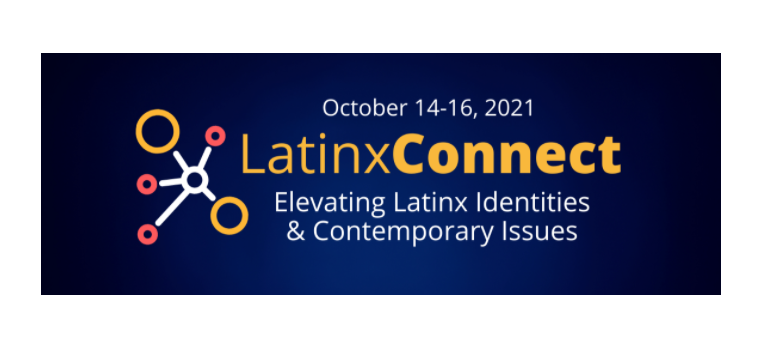Pitt to host first Latinx Connect Conference
Screenshot of Latinx Connect Conference webpage
Hosted by the Office for Equity, Diversity and Inclusion, the first Latinx Connect Conference will run Oct. 14-16. The conference is virtual, free and seeks to elevate Latinx identities and contemporary issues.
October 10, 2021
For Gina Garcia, Hispanic Heritage month is more than just a celebration — it’s about highlighting a community suffering from injustice and inequity.
“Hispanic Heritage month isn’t just about celebrating and dancing and eating food— that’s not what we want it to be,” Garcia, chair of the Latinx Connect conference said. “We want it to really be a call for justice and equity because this is a community that faces tremendous inequity.”
Pitt will commemorate the end of Latinx and Hispanic Heritage Month with Latinx Connect, a virtual conference. The conference runs from Thursday to Sunday and is hosted by Pitt’s Office for Equity, Diversity and Inclusion. There is no deadline to register and anyone can attend its more than 60 programs, workshops and panels.
According to the website, the conference “aims to move us beyond ‘celebrating’ Latinxs.” Gina Garcia, an Educational Foundations professor and chair of Pitt Latinx and Hispanic Heritage month, said, because of the small size of the Latinx and Hispanic community in both Pittsburgh and Pitt, running a successful conference is “a pretty big deal.”
“We cannot reinforce negative stereotypes in a place where we’re a really small community,” Garcia said. “Initially we were really about awareness and bringing awareness to the community. And, this year, we started pushing for advocacy and educational programming and increasing awareness around issues like immigration, undocumentation, voting and other political and health issues.”
With the largest planning committee for Pitt’s Latinx and Hispanic Heritage month to date, Garcia said organizing the conference was “the next step.” Garcia and her committee organized more than 60 events — including salsa dancing lessons, a Policy & Advocacy Panel on Current Latinx Affairs in Pennsylvania and live music.
All conference events will take place over Zoom, and participants can access Zoom links to conference events via Canvas. Those who wish to register only have to fill out a brief form that details their name, email and affiliation to Pitt. The conference is completely free.
Ron Idoko, Pitt’s diversity and multicultural program manager, said he suggested a conference to Garcia in June after the recent success of the Diversity Forum — an annual summer forum hosted by the Office of Equity, Diversity and Inclusion. Idoko, who runs the Diversity Forum, said this year was their biggest turnout yet.
Idoko says he approached Garcia about a conference because he’s always looking for opportunities to engage the Pitt community.
“I tend to be what I call a thoughtful pusher,” Idoko said. “We have a lot of really talented and incredible researchers and scholars and experts across our community and so how do we work to further elevate the work that they do? So, for me, I’m always trying to be someone who can be a catalyst towards these bigger opportunities for engagement.”
According to a University spokesperson, Pitt created the Latinx Connect conference to “create space for open and authentic conversations to evolve.”
“The University of Pittsburgh’s Office for Equity, Diversity and Inclusion is proud to host the Latinx Connect Conference,” the spokesperson said, “I hope to see students, educators, scholars, leaders, advocates and others coming together — and listening and learning together — in ways that will deepen our understanding of Latinx culture, identities, challenges and triumphs.”
Along with the conference, there will be a Latinx artifact showcase where anyone can submit pictures of artifacts with personal and meaningful significance to them. Artifacts will be shared online and on Pitt social media pages. The deadline to submit is Friday.
Idoko said he thinks the artifact showcase is “really powerful” because of “the power of creative expression on how art can be utilized to impact our understanding.”
“We utilize the artifact showcase for folks to really highlight different parts of their culture,” Idoko said. “Creating that sort of insight is really powerful to our learning — so, we’re really glad that people have been receptive to it and are sharing parts of themselves.”
Idoko said, from the start, they didn’t want to make the conference “too academic.” Instead, the committee aimed to create a “community oriented” conference.
“We recognize and embrace learning from all aspects, all members of the community — which creates a really distinct opportunity to connect folks from different places,” Idoko said. “This isn’t a purely academic exercise — this is community oriented.”



